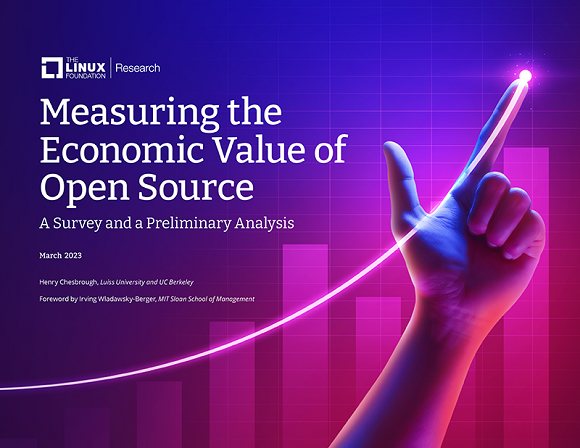Where is the ‘economic value’ of open source?
The Linux Foundation has analysed the state of open source software value to specifically look at the ‘economic value’ of open source.
Its work may suggest that companies perceive the greatest benefits of open source software as cost savings, faster development, open standards and interoperability.
Almost two-thirds of the companies surveyed reported that the perceived benefits of open source clearly exceed the perceived costs.
The ratio of benefits to costs appears to be rising for nearly half of the respondents, while only 16% felt that the ratio was declining.
Professor Henry Chesbrough, of Luiss University in Rome, Italy and the University of California at Berkeley Haas School of Business, a noted pioneer and author on the subject of open innovation, conducted the survey and analysis in partnership with LF Research, the Linux Foundation’s research arm.
Many of the surveyed organisations have worked with open source software for more than 20 years while a significant number started in the last five years.
Companies have also suggested that the longer they use open source software, the more value they get from being active in contributing to open source initiatives.
“It pays to be more open,” said Chesbrough. “Software is a technology whose importance is steadily increasing and we’re seeing companies reap the benefits of embracing the foundational technology of open source software. Adopting open source software allows companies to embrace a more vibrant, surprising, and exciting future.”
Because open source technologies, including the ubiquitous Linux operating system, are free to use, they are challenging to value in economic terms. The survey dug deep into open source software use by more than 430 companies, 43% with annual revenue in excess of $1 billion.
The greatest perceived costs of using open source software were security gaps, hidden support costs, and those related to reducing legal uncertainties regarding licensing.
Only one-fifth of respondents said perceived costs exceeded perceived benefits.




